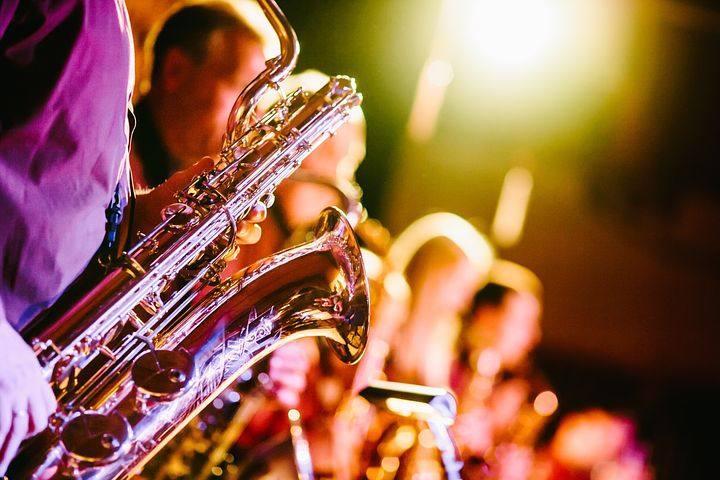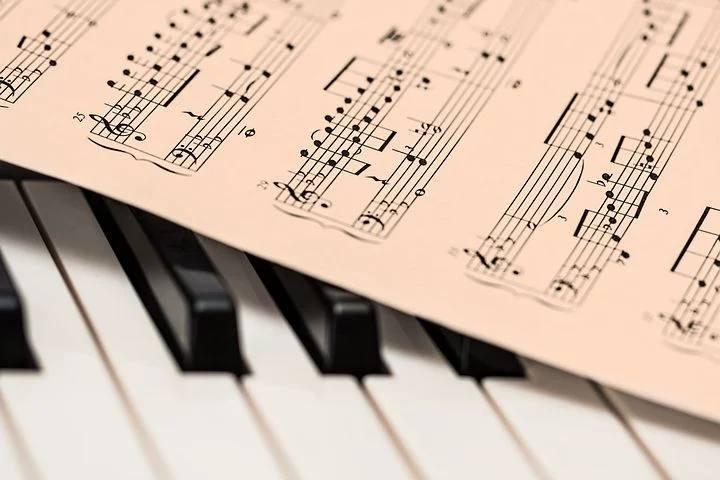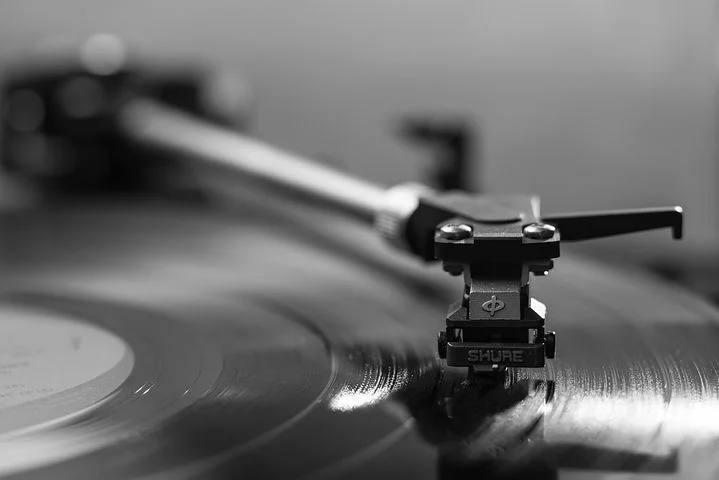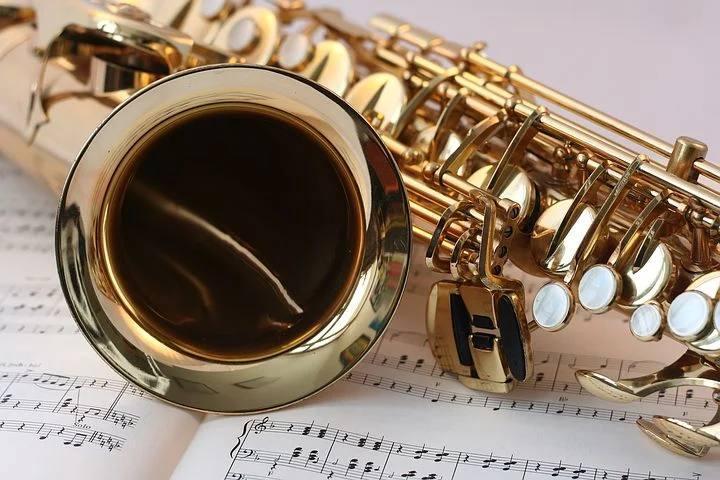The Chemistry of Music: Why Is Music Important?

Have you ever considered the world to be full of chemistry? Indeed, you must have noticed it with your food or in the most primitive case of male and female relationships. One essence of music is that it is a chemistry of sounds. This is why it has the ability to not only feed the ears but break the conventional reality of our humanly existence and feed both our spirits and soul. No wonder music is food to our soul.

What Is Music?
Music is primarily an art form. As it is very common in the world today, definitions and perceptions of phenomena vary and can be subjective. Nevertheless, there are some objective grounds for determining what a phenomenon is. Due to the manner and nature of music, it is somewhat difficult to define what it is without taking to heart, individual, societal and cultural perceptions of what it truly is.
But according to Wikipedia, “music is an art form, and cultural activity, whose medium is sound. General definitions of music include common elements such as pitch, rhythm, dynamics, and the sonic qualities of timbre and texture. Different styles or types of music may emphasize, de-emphasize or omit some of these elements”.
Traditionally, a layman may assume that music is only when one does singing with the voice. But from the definition from Wikipedia, we see different aspects that define music e.g. pitch and dynamics. It is also worthy to note the most significant factor in creating music is AIR.
Did You Know?
The word music comes from the Greek word MOUSIKE and it means ‘art of the muses’. Harmony, rhythm, and melody are important in creating music.

What Is Music Made Of?
Music is primarily made up of sounds and vibrations. To a larger extent, music is made up of a variety of spices which makes it pleasant. Music is made up of lyrics (words), verses, chorus, experiences, harmony, voices (which is optional), instruments, style, tempo, timbre or color, form, structure, beat or pulse, etc.

Why Is Music Important?
Music is important for so many reasons, here are some few reasons why music is important;
- It improves our mood
One of the primary importance of music is that it improves our mood. Music has the power to take you from a sour mood to a happy mood. Just the sound of your favorite jam on the radio or your phone is enough to brighten your mood. Although your mood can be brightened through music, some kind of music can do the opposite. Not in a bad way, but it can make you reflect on a particular subject matter. Some may even make you cry.
- It lessens anxiety
Music has therapeutic abilities. If you are feeling really anxious then you need to increase the volume of your music. The message from different kinds of songs just lifts the anxiety away.
- It improves our memory
Many have argued that you can remember the lyrics of a song better than the lines from a book you have read. This is because music has the ability to improve your memory. The best way to learn or to memorize is by turning it into a song.
- It eases pain
Like we earlier stated, music has therapeutic abilities. Probably when you listen to a song lyric that exposes all the pain you feel, it is easier to heal. Hearing music from some musical instruments is just soothing and you will never realize that your pain is drowning with the song until the pain is gone.
- It provides comfort
Music is comforting as well as relaxing. Some musicians just have the ability to create comforting songs/sounds that all you want to do is bask in the song all day.
- It expresses our emotions
Music expresses our emotions especially when there are lyrics accompanying the sounds. This feature is not just for the hearer alone but even the musicians themselves are given a medium to express themselves when they sing or play.
- It is soul food
The basic reason why music is so important is that it cuts across our physical reality and can reach our souls.
Did You Know?
The first song that was ever known to humans is known as the Hurrian Hymn no. 6. It was composed of Syrians about 3400 years ago.

Do Animals Make Music?
Well apart from what we see in cartoons and animations, there is a branch of musicology which is known as Zoomusicology. It is the study of the music of animals, or rather the musical aspects of sound or communication produced and received by animals. Well, birds have been known to whistle which is equivalent to human singing.
What Is The Use of Music?
Music is known to have numerous uses but here are some few;
- Ritual purposes
One evident means by which music breaks through our physical realities is by virtue of ritual purposes. In our different religions, music is used as a medium to conjure or ward off the presence of spiritual entities. It is likely to say that we interact with spirits using music.
In Africa where there is still a vast stay of traditional worship, music is used to interact with the gods. This could take the forms of incantations or the playing of a particular instrument.
In Nigeria, there is a tradition that music is used to appease the royals, especially the kings. They may have a particular family of song makers just to serve the king. Instruments like the flute or windpipe are common with the Igbos and then there is the talking drum common to the Yorubas. The king must be sung praises using music and there is a notion that he will be able to interact with the spirits and his ancestors when he listens to a particular type of music.
- Ceremonial purposes
According to human life and culture, whatever kind of ceremonies that take place, there must be music to accompany it. Even when we mourn or when there is a wedding. Music is fashioned and created in such a way that there is a type of music for every ceremony.
- Advertisements
One of the best ways to attract an audience, promote your brand, and market your goods is by making use of music. Something pleasant that will be on the minds and lips of your buyers when they purchase your goods. The best target population for this scenario are children. Remember when we were young, just by the songs they sang in an advertisement, we pushed our mothers to purchase the goods for us. You may want to consider why Indomie sells.

- For healing purposes
The role of music is beyond entertainment. In traditional African societies and even in western cultures, music therapy is recognized and it is used for healing purposes.
- For work
Music is used to ease the tension when we work. Take for example in banking halls, receptions, and waiting areas, you find some background music playing. This keeps the workers rejuvenated as it relaxes both their nerves and gives room for them to work in a comforting environment. Put it to work, whenever you have a chore that is tasking, play a playlist of some of your favorite songs, you will never know when you finish it.
- For communication
Music is used for communication. Primarily, information and emotions, as well as ideas, are passed through the medium of music. More seriously, matters that cannot be easily aired are discussed using music. The ills, woes, vices, as well as the good in society, can be communicated through music.

- For education
As far from the fact that music is studied in school, music is used as a means of education, especially in kindergarten. How many of us till today still sing ‘30 days hath September’ just to know how many days are in the current month. You find it easy to read when listening to music, also your recalling of concepts is easy and vivid through music.
Based on reading types, some may find it disturbing to read with music but maybe you are listening to the wrong genre of music.
- For sports
During sporting activities, groups come together to sing songs in praise of their teams so as to increase their morale and get them into action hence winning higher scores. Music, therefore, becomes a mutual ground of showing solidarity and encouragement.
- As a means of livelihood
Over time, music has become a means of livelihood. As the nature of music is diverse, music lovers have discovered various aspects of music of which they could channel into a means of livelihood. We have music teachers, gospel artistes, music schools, music concerts, musicians, music classes, music authors, music shows, producers, managers, etc.
Did You Know?
The study of human music is known as ETHNOMUSICOLOGY.

Who Is A Musician?
A musician is a person who is musically talented. Such a person has been able to understand and master an aspect of music, such that s/he is a professional in it. Musicians can specialize in any musical style. Some musicians can play different varieties of different music styles.
What Is The Difference Between A Musician and A Singer?
Musicians and singers are different in many aspects which may include;
- Talent versus knowledge
Anyone can be born with the talent of singing but being a musician requires the acquisition of more musical knowledge. You may have the voice but lack knowledge of how to use it.
- Playing instruments versus the voice
The greatest difference between musicians and singers is that the latter makes use of the human voice while the former makes use of musical instruments.
- Composing music versus singing it
Some singers can compose music but not all of them. They perform better at singing them. While every musician can compose music.
Did You Know?

The kind of music that makes you focus is CLASSICAL music. Researchers claim that listening to classical music helps one to perform tasks more efficiently. The theory was named the MOZART EFFECT. It suggests that listening to classical composers can enhance the brain’s activity and act as a catalyst for improving one’s health and well-being.

48 Different Genres of Music
Different genre of music includes;
- Alternative rock
- Art music
- Ballad
- Blues-rock
- Classical
- Contemporary R&B
- Country
- Dance
- Dance-pop
- Disco
- Dubstep
- Easy listening
- Electro
- Electronic dance
- Electronic music
- Emo
- Experimental music
- Folk
- Funk
- Gospel
- Grunge
- Hard rock
- Heavy metal
- Hip hop
- House music
- Indie rock
- Instrumental
- Jazz
- Jazz fusion
- K-pop
- Musical theatre
- New wave
- Opera
- Orchestra
- Pop
- Progressive rock
- Psychedelic music
- Punk rock
- Rap
- Reggae
- Rhythm and blues
- Rock
- Soul
- Soundtrack
- Swing music
- Synth-pop
- Techno
- World music
Did You Know?
That air is used for making a speech. Primarily, the air we breathe in and out is used for articulating sounds, this is why it is used in creating music.

15 Musical Instruments You Can Easily Learn And Play
Everyone loves music and it is their desire to learn to play a musical instrument. Remember you are not a musician until you can play at least one musical instrument. Here is a list of 15 musical instruments you can easily learn and play.
- Bass guitar
- Cello
- Clarinet
- Classical guitar
- Drum set
- Electric guitar
- Flute
- Harp
- Keyboard
- Percussion
- Piano
- Recorder
- Saxophone
- Trumpet
- Violin

Music has a tremendous impact on humanity. Long before the development of the music industry, music was rooted in the sacred foundations of spirituality. Whatever can travel through our physical realities and reach the dimensions of the spirit is pretty much very important. Like every chemistry in the world, the nature of and diversity is too unique, rich, and beautiful for you to be stuck listening to only one genre of music, it’s time to explore.
All images are sponsored by Pixabay, free for commercial use and no attribution required
Train is a female editor and writer at Afrolady International concepts. With knowledge of Linguistics and a love for languages, She objectively edits and writes contents in order to preserve cultural backgrounds, heritage, worldviews and mother tongues. She is bold and unique.

